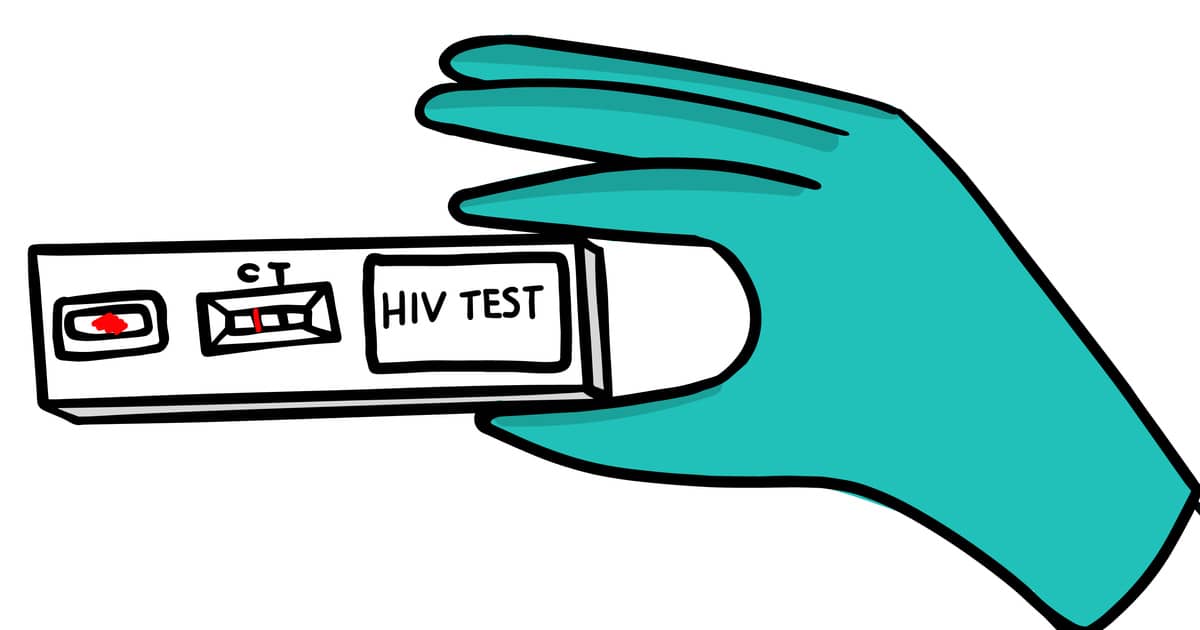While the widespread adoption of self-testing for HIV may seem like a good thing, this opportunity brings on some unexpected consequences.
A recent Singaporean study suggests that self-testing for HIV among high risk groups could lead to less effective testing for other common sexually transmitted infections (STIs). But this isn’t the only consideration pertaining to the growing popularity of self-testing kits. How reliable are these self testing kits and what are some of the risks to keep an eye for?
HIV Self-Testing Kit Accuracy
Most of the kits intended for HIV testing at home are a modified version of the professionally used tests available in sexual health clinics. Since these tests are created for easier at-home use, they come with some limitations.
Home testing involves the collection of a specimen, usually a blood sample or oral fluid. A lancet may be provided alongside the test kit to enable an effortless finger prick and the collection of blood. The collected sample is then applied onto the test strip and a reading will typically become available in a few minutes.
HIV self-testing kits are second or third generation screening options. This means that they can only detect HIV antibodies. The fourth generation tests used in Singaporean clinics can detect a protein that’s contained within the virus itself. Fourth generation tests are much more accurate when it comes to picking early infections. The reason for that it simple – it takes several more weeks for antibodies to develop in large enough, detectable quantities.
Second and third generation testing kits are very accurate and reliable for picking up an infection that has already become chronic. If you’ve been exposed to the HIV virus recently, however, going to the clinic and getting a fourth generation screening option would be a much better idea.
Studies suggest that the tests used by professionals are 99.8 per cent accurate in detecting HIV and their specificity is 99.9 per cent. In comparison, when instructions are followed correctly, self-test kits are about 97 to 98 per cent effective.
The Benefits of Home Testing
There still seems to be a stigma linked to taking care of one’s sexual health. It continues existing in Singapore, as well as other parts of the world.
At-home testing opportunities allow people who have potentially be exposed to screen themselves without worries about their privacy being compromised.
In addition, the kits designed for at-home use are fairly accurate (when used correctly and at the right moment after the exposure) and they provide almost instantaneous results.
Self-test kits are a good choice for those who can’t gather the courage to visit a clinic. This way, they can still get tested and if the result is positive, they can seek treatment options early enough.
A False Sense of Security?
Let’s turn our attention to the recent Singaporean study carried out among men who have sex with men. This important research has revealed an important danger linked to HIV self-testing that shouldn’t be underestimated.
The increasingly popular adoption of HIV self-testing kits is making people in high risk groups less likely to get tested for other common STIs, researchers concluded.
The study involved the participation of male volunteers aged 18 to 39. Researchers conducted thorough interviews to understand their attitudes towards getting tested for STDs and the most common barriers standing in the way of frequent prophylaxis.
Most of the study participants who opted for HIV self-testing chose this opportunity as an easier one, as it eliminates the need to visit a clinic. In addition, self-testing provides much more comfort in terms of privacy and confidentiality.
While the benefits are easy to understand, researchers also found out that the use of self-testing has a negative impact on getting tested for other STIs. When visiting a clinic, high risk individuals are often given the opportunity to get a bundle test. Such products allow for simultaneous screening for multiple common STIs. At the time being, such opportunities are unavailable for at-home use.
Researchers concluded that education and higher levels of awareness are required to present the importance of STI testing bundles. Structural interventions could also be carried out to make testing campaigns more accessible and widespread.
Taking Care of Your Sexual Health Involves More Than an HIV Test
While HIV and AIDS are the STIs that most people worry about after risky behaviour, other sexually transmitted diseases are much more widespread. Getting tested for those is as important as knowing your HIV status. Many STIs can develop for prolonged periods of time without causing symptoms. Screening is the only reliable way to know what’s going on.
STD clinics in Singapore offer reliable, readily accessible and fully confidential testing for most common STIs. The test will be conducted by a professional, almost entirely eliminating the risk of human error. In addition, you’ll be consulted and provided with useful information about protecting yourself, getting screened frequently and seeking treatment.
Don’t hesitate to visit Shim Clinic during our working hours every day of the week. You can also contact us by phone to learn more about STI testing and have your questions answered.
References:
- How accurate is self-testing for HIV? (2019, June 26). Retrieved December 31, 2020, from https://www.aidsmap.com/about-hiv/how-accurate-self-testing-hiv
Performance evaluation of the point-of-care INSTI⢠HIV-1/2 antibody test in early and established HIV infections. (2017, June 1). Retrieved December 31, 2020, from https://www.sciencedirect.com/science/article/abs/pii/S1386653217300896?via%3Dihub

